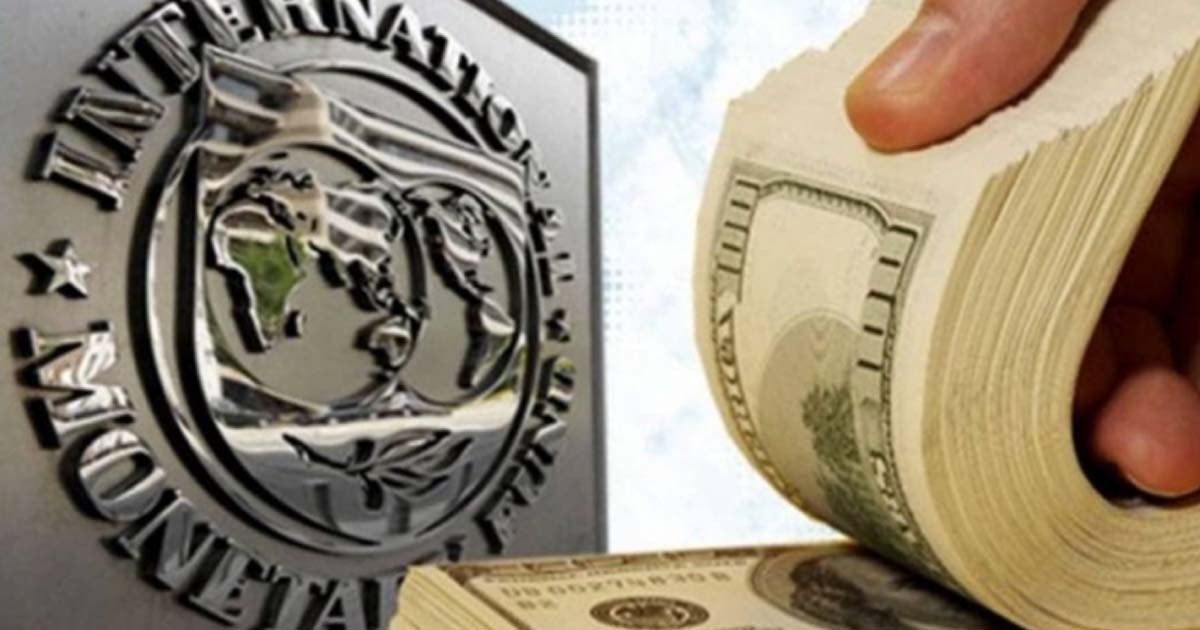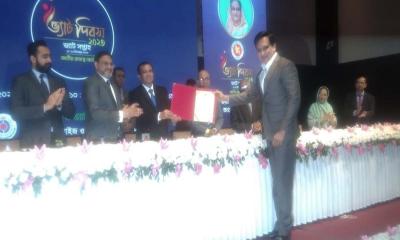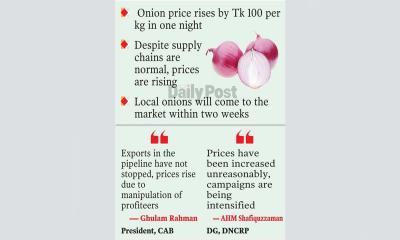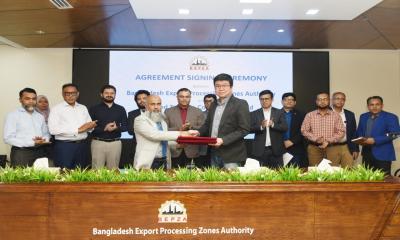A decision on the second tranche of the International Monetary Fund's (IMF) ongoing loan program will be made today. In the board meeting of the organization, the two Asian countries Bangladesh and Sri Lanka are supposed to discuss the relaxation of loan conditions. A second installment will be available if the board members agree to the concession. Analysts say that the course of the country's economy depends on the IMF's debt relief. Because other donor groups consider the IMF as the standard. Organizations like the World Bank, ADB, and JICA may turn away if the loan program is suspended for any reason. The USA is the largest contributor to the IMF. Due to the ongoing diplomatic tension between Bangladesh and the USA, there is tension over the issue. Officials of the relevant departments of the Ministry of Finance and the Central Bank believe that it will be decided today.
Since last year, Bangladesh has been in a multi-faceted crisis of macroeconomics. Reserve crisis along with inflation has pushed the economy to a fragile state. In such a situation, Bangladesh approached the IMF. Another Asian country, Sri Lanka, was facing an even more severe economic crisis than Bangladesh. The people of that country are suffering from the pressure of unbearable inflation. The country went bankrupt due to the energy and reserve crisis. Incidents such as the collapse of the country's government occur. Bangladesh and Sri Lanka approached the IMF to overcome the economic crisis. In the meantime, the IMF has waived the first installment of the loan according to the two countries. However, uncertainty has arisen regarding the second installment of the loan. Because both countries have failed to fulfill the conditions given by the organization. A request has been made to exempt the second installment by applying for time to fulfill the conditions. After examining the information provided, the second tranche of the bailout for the two countries is being proposed to the IMF Board today.
Earlier, on January 30 this year, the IMF board approved a loan proposal of $ 4.7 billion for Bangladesh. The loan will be received in 42 months in seven installments. The average interest rate on the loan is 2.2 percent. Last February, Bangladesh received $476 million of the first installment of the loan from the IMF. There are two types of loans in the whole package. Out of this, $3.33 billion will be available from Extended Credit Assistance or Enhanced Funding (ECF & EFF). $1.4 billion will be available under the Resilience and Sustainability Facility (RSF). During the loan program till 2026, Bangladesh will have to implement various conditions and reform programs. A decision will be taken at the IMF board meeting regarding the $680 million waiver of the second installment of the loan today.
To get the loan, the IMF has given Bangladesh the conditions to meet Quantitative Performance Criteria (QPC), Indicative Targets (IT), and Structural Benchmarks (SB). Among these, the conditions related to Net International Reserve (NIR), primary balance, and external payments arrears are under the purview of QPC. Bangladesh could not fill up the reserve terms. As an indicator, the IMF set certain targets for tax revenue, government spending on social sectors, and government capital investment. NBR could not collect revenue in line with the target.
Under the terms of the IMF, initiatives were taken to increase the tax-GDP ratio by 10.5 percent by last June, calculate reserves according to BPM6, determination of market-based foreign exchange rates, preparation of action plans for pilot risk-based monitoring of banks and disclosure information on distressed loans. Apart from this, the IMF has also stipulated the adoption of an interest rate corridor system by July. The condition was to submit the amendment of the Bank Company Act and the draft of the Finance Company Act to Parliament by September. In addition, by the end of September, there was a condition for adopting a sustainable government procurement policy and formulating a related action plan to integrate climate and green initiatives. The loan program also stipulated a time-based pricing mechanism to coordinate fuel prices by December this year.
The IMF's review mission was completed in Bangladesh from October 4 to 19 under the leadership of Rahul Anand, head of the IMF's Asia and Pacific Division. At the end of the mission, Bangladesh and IMF officials reached a consensus. Later, Rahul Anand said in his statement, that Bangladesh authorities have made significant reforms in terms of structural reforms under the IMF loan program. But challenges remain. Macroeconomic management has been challenged by the combined effects of prevailing risks and continued interest rate hikes in the global financial sector. As a result, the exchange rate of the local currency and foreign currency reserves have come under pressure. In this situation, the short-term policy priority should be to control inflation, bear the impact of these economic crises on the vulnerable population, and build tolerance to face the impact of external influences. We welcome Bangladesh Bank's decision to increase the policy interest rate by 75 basis points on October 4. A gradual tightening of fiscal and monetary policies and a more flexible exchange rate will help restore macroeconomic stability.
The IMF loan for Bangladesh was approved last January. At that time, the overall inflation in Bangladesh was 8.57 percent on a point-to-point basis, which stood at 9.49 percent at the end of last November. Among them, food inflation is 10.76 percent and non-food inflation is 8.16 percent. In January, the foreign currency gross reserve of Bangladesh was $32.22 billion, which decreased to $24.89 billion at the end of last November. However, according to IMF's accounting system BPM6, Bangladesh's reserves are now even lower. According to BPM6 on December 6, Bangladesh's reserves stood at $19.13 billion. Bangladesh's net international reserve or (NIR) reserves are also conditional on the target. According to this calculation, the reserve amount of Bangladesh should be about $16 billion. However, Bangladesh Bank does not disclose this information.
On the other hand, on March 20 of this year, the IMF board approved a loan program of $3 billion for Sri Lanka for 48 months. In the meantime, the country has received $33 million 30 million of the first installment of this loan. The IMM and Sri Lankan officials reached an agreement on October 19 for the second tranche of the loan. Sri Lanka will receive $330 million in the second tranche if the IMF board approves it. In the meantime, Sri Lanka has undertaken a comprehensive reform program in compliance with the IMF's conditions. The inflation and reserve situation of the country has improved tremendously. Sri Lanka's inflation rate in January this year was 45.60 percent. From there, at the end of last October, the country's inflation dropped to 1.20 percent. At the end of January, Sri Lanka's foreign exchange reserves were $2.12 billion, which increased to $3.58 billion at the end of last November. In addition to inflation and reserves, Sri Lanka's tourism sector and remittances also increased significantly during this period.
ARS











